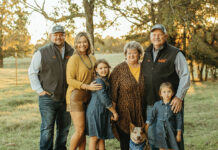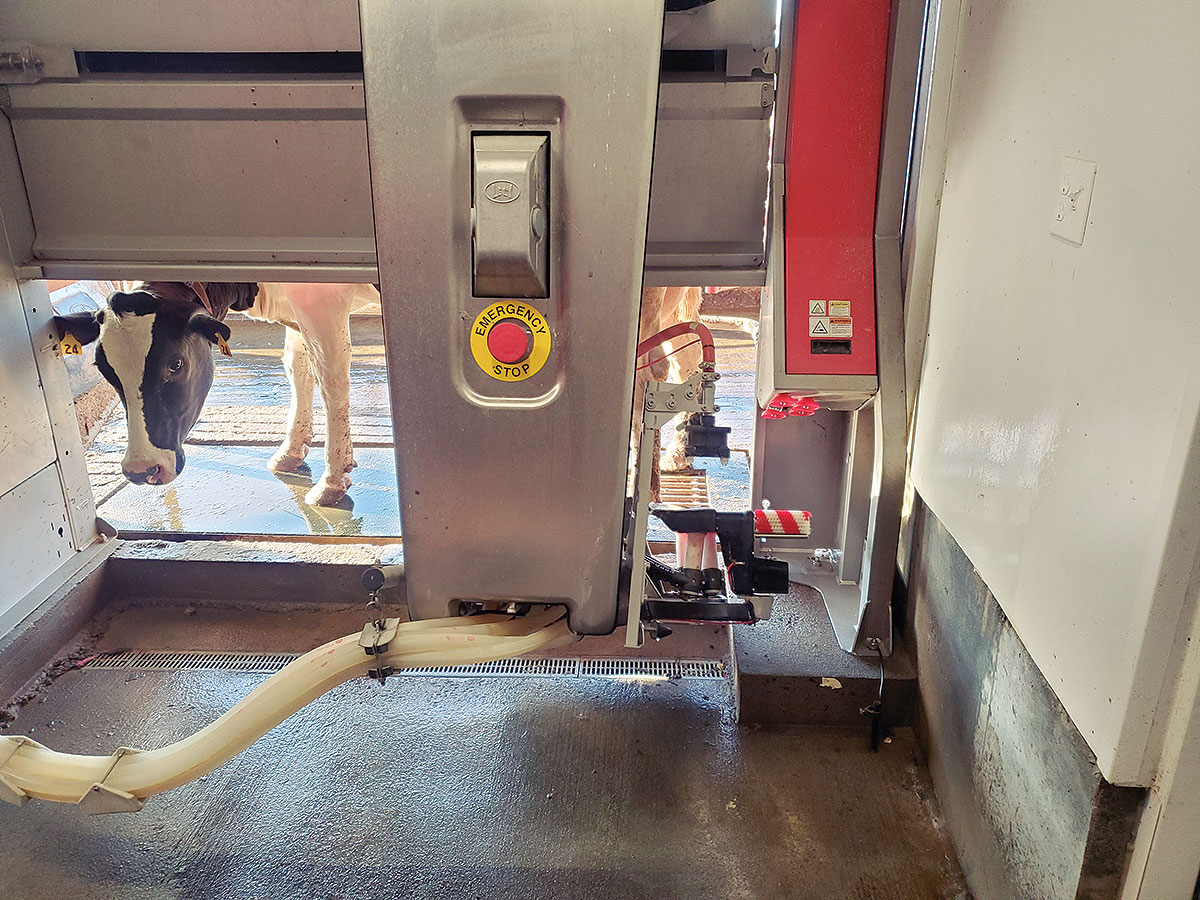 "We try to do this naturally,” explained Joanna Burgin of Crazy Woman Ranch near Salem, Ark. “Our goats are in the pasture. We want them to live off the brush and the land. We want them to work for us, not the other way around.”
"We try to do this naturally,” explained Joanna Burgin of Crazy Woman Ranch near Salem, Ark. “Our goats are in the pasture. We want them to live off the brush and the land. We want them to work for us, not the other way around.”
That’s how she explained the operation she and her husband, Steve, run in Fulton County. “We had around 300 goats until last fall. We are now down to about 80. We sold our other farm and with the continuing rise in feed costs and difficulty finding good farm hands, we decided to downsize,” Joanna explained.
Goat Sufficient
Joanna and Steve have 80 acres with their house and barn where the goats are free to survive on. “We have the brush and trees that goats do well on here. Goats are not pasture grazers, they are foragers and we have forage for them,” she chuckled.
The Burgins initially raised goats for land management and have gradually turned to commercial goats for meat production. “We primarily raise Kiko does and cross them to Tex Master bucks. These seem to produce a quality meat animal. They have shorter legs and more muscle and meat in the rump than other goats,” she reasoned.
“I’ve been raising goats since 1973 when I had dairy goats for my girls and their 4-H projects. In the early 1990s we began raising Boer goats when they were first imported from New Zealand. We moved to Salem in 2000 and have been raising goats here for land management and then meat.
“We are over-the-road truck drivers on call to drive loads for the United States government, so it’s been tough keeping up with our goats,” Joanna explained. “That was also part of the reason for our downsizing. We weren’t getting to be as involved with the animals. With the smaller herd, we hope to be a little more involved with the goats on the farm.”
Upkeep and Maintenance
“When we moved the remaining goats back home, we had to look at our fences. We recently completed new perimeter fencing with hog wire and we use electric netting to separate our pastures. This has been very successful and our goats know to stay away from this fence or they’ll get a shock,” she added.
Joanna also talked about the working facilities they have on site. “We have a working chute with a table in the same area as the daily feeding pen. When we run the goats in for feeding, we take time and check their eyes and feet. If we need to we can run them through the chute easily and take care of any issues.”
Joanna explained one of the challenges to raising goats is the parasite issues. “Of course these issues are worse in the summer, but they are something we have to watch all times of the year. We generally deworm our goats two times a year — in the spring and fall. If we run one in that needs a second deworming in the summer, that’s when we cull that animal from our farm,” she explained.
Kidding time
“We generally have kids in December, January and February, however there is a stray one here or there,” Joanna explained. “We allow our goats to kid out in the field or in the bush. That is more natural and they seem to do better when they can go out by themselves and do this.
“They tend to breed by nature. Somehow their bodies know if it’s a tough year, only produce one kid, or if everything is going well they'll usually have twins. Most of our goats now give us twins, so in the next three months, we could have 160 little goats around the farm,” she added with a smile.
“Every once in a while a goat will need help during the birthing process, but most of the time, they just go out there and do what comes naturally,” she said. “That’s why we don’t feed the does that much in the last two months of pregnancy — the kids grow too much and cause birthing problems.
“We are also lucky that we don’t have trouble with predators. We have three dogs that stay out with the goats and protect them at all times,” Joanna said. “They are Great Pyrenees dogs and they are wonderful. We have even known them to lie down over new kids and protect them from the cold,” she added.
Advice for others
“My most important piece of advice would be to do your homework. Don’t buy registered stock unless you really want to be a purebred breeder — and then think about it long and hard,” she said. “The costs associated with commercial stock versus registered animals are very different. Just make sure you know what you’re getting into and why you are doing it.
“Start small; don't overload with too many goats on your land,” she added. “Make goats a pleasurable experience and not an overwhelming responsibility.
“Also think about where and how you are going to raise the goats. If you have pasture, they are not going to do well. Goats need scrub brush and trees to do their best. One needs to take all this into consideration before purchasing goats. After you’ve asked yourself all these questions, then go for it. I love my goats.
“Goats are good for cleaning up brush. Right now they love the cedar trees and are doing a good job clearing our farm," Joanna explained. “It is good for them, and if you look around we have plenty for them.”
“Make this an enjoyable business,” said Joanna. “Don’t overload your land with goats. It should be fun and that’s how we look at our operation at Crazy Woman Ranch.”







